The Evolutionary Battle Between BAT's Search Engines and Browsers in the AI Era
![]() 07/13 2025
07/13 2025
![]() 610
610

 AI is blurring the lines between search engines and browsers, presenting opportunities for realignment among both internet giants like BAT and emerging startups.
AI is blurring the lines between search engines and browsers, presenting opportunities for realignment among both internet giants like BAT and emerging startups.  Original Tech News AI New Tech Team
Original Tech News AI New Tech Team
In the PC internet era, search engines reigned supreme, with Baidu firmly holding the "throne" of China's internet for years. Despite the efforts of competitors like Tencent and 360 with their desktop browser products, Baidu's dominance remained unshaken. The advent of smartphones ushered in the mobile internet era, fragmenting super apps into data silos and limiting search engines' efficacy within their own ecosystems. Alibaba's Kuake re-entered the search and browser race with significant achievements. Now, with the AI era fast approaching, Baidu's vaunted search engine, alongside Tencent and Alibaba's browsers, are being reshaped and fused. A new breed known as the Agentic Browser (Intelligent Agent Browser) has emerged quietly, signaling a new battle for traffic supremacy. At Google I/O Conference in late May this year, AI Mode, which claims to have reimagined Google's traditional search logic, garnered significant attention. Leveraging advanced reasoning and multimodal analysis, it transcends mere question answering, offering a revolutionary intelligent search experience. 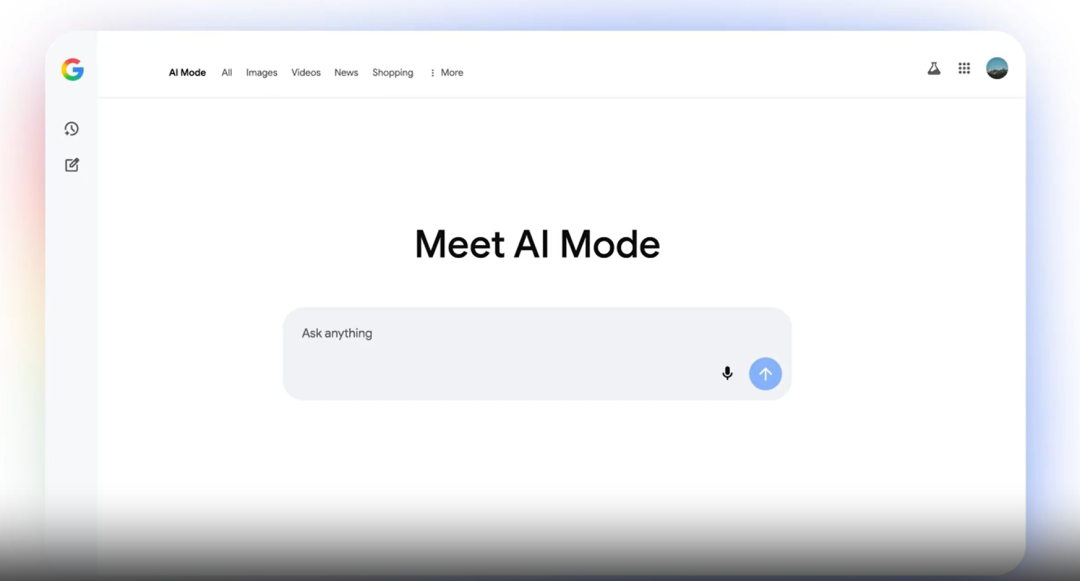 Image source/Google AI Mode
Image source/Google AI Mode
Similarly, at Baidu AI DAY recently, Baidu Search announced its most significant revision and upgrade in a decade. The traditional search box has evolved into a "Smart Box," catering to multimodal and richer search demands such as long-text searches exceeding a thousand words, file searches, AI tool invocations, and voice searches. Meanwhile, Tencent's QQ Browser and Alibaba's Kuake Browser continue their AI transformations and iterations, supported by generative large language model technology. Even OpenAI was reported to have poached Google Chrome's team late last year, amid rumors of developing its own browser as a new technology carrier for ChatGPT. As the battle for super apps in the mobile internet era wanes, the battle for super entry points in the AI era is heating up.
01
AI Redefines the Search Box  Two decades ago, the iconic slogan "Baidu it, and you'll know" encapsulated the pivotal role of traditional search engines in navigating the information explosion of the internet. The tiny search box served as the gateway to the online world, collecting numerous purpose-driven user needs. Each keyword entered by users held potential commercial value. Google and Baidu dominated the global and domestic scenes respectively, processing tens of thousands of searches per second and responding to billions of daily search requests. These vast data resources fortified their industry moats until the advent of large model-driven AI search. Traditional search engines required keyword-based information filtering and matching, posing a threshold for users and testing their ability to discern search results. Large model technology enables users to converse with AI through natural language, obtaining summarized answers with a single click, albeit with some accuracy flaws. Perhaps due to "AI hallucinations," when Microsoft integrated ChatGPT into its search engine Bing, daily active users surpassed 100 million within weeks, yet Google and Baidu showed little urgency. It wasn't until the second half of 2023 that they gradually began integrating and upgrading their self-developed large models with search products. The emergence of Perplexity and DeepSeek accelerated the adoption of AI search. As a less than three-year-old AI search company, Perplexity adheres to the product philosophy of "AI is the answer." In May this year, it raised $500 million at a valuation of $14 billion, doubling its valuation in just six months. NVIDIA CEO Jen-Hsun Huang has publicly stated multiple times that Perplexity is one of his most frequently used AI tools.
Two decades ago, the iconic slogan "Baidu it, and you'll know" encapsulated the pivotal role of traditional search engines in navigating the information explosion of the internet. The tiny search box served as the gateway to the online world, collecting numerous purpose-driven user needs. Each keyword entered by users held potential commercial value. Google and Baidu dominated the global and domestic scenes respectively, processing tens of thousands of searches per second and responding to billions of daily search requests. These vast data resources fortified their industry moats until the advent of large model-driven AI search. Traditional search engines required keyword-based information filtering and matching, posing a threshold for users and testing their ability to discern search results. Large model technology enables users to converse with AI through natural language, obtaining summarized answers with a single click, albeit with some accuracy flaws. Perhaps due to "AI hallucinations," when Microsoft integrated ChatGPT into its search engine Bing, daily active users surpassed 100 million within weeks, yet Google and Baidu showed little urgency. It wasn't until the second half of 2023 that they gradually began integrating and upgrading their self-developed large models with search products. The emergence of Perplexity and DeepSeek accelerated the adoption of AI search. As a less than three-year-old AI search company, Perplexity adheres to the product philosophy of "AI is the answer." In May this year, it raised $500 million at a valuation of $14 billion, doubling its valuation in just six months. NVIDIA CEO Jen-Hsun Huang has publicly stated multiple times that Perplexity is one of his most frequently used AI tools. 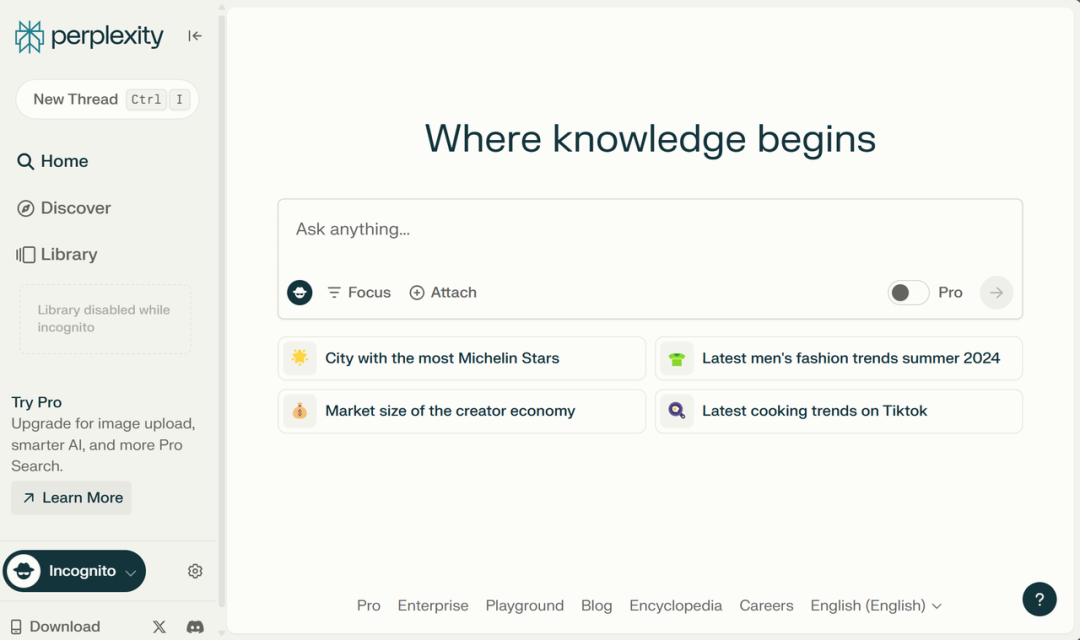 DeepSeek has contributed a cost-effective deep thinking model, stimulating the upgrade of existing large model products and enterprises while empowering downstream application enterprises closest to users to swiftly embrace the AI trend. Numerous Baidu products officially announced their integration with DeepSeek immediately after its launch, catering to user needs.
DeepSeek has contributed a cost-effective deep thinking model, stimulating the upgrade of existing large model products and enterprises while empowering downstream application enterprises closest to users to swiftly embrace the AI trend. Numerous Baidu products officially announced their integration with DeepSeek immediately after its launch, catering to user needs.  For traditional search giants like Google and Baidu, search engines are not mere tool-type products but the core hubs connecting traffic, commerce, and ecosystems. Hence, whether it's the release of Google AI Mode or the completion of Baidu Search's "Smart Box" upgrade, they are both attempts to consolidate or regain their status as traffic entry points. And those browser products that once struggled to unseat them will not miss this counterattack opportunity amidst the dual transformations of smartphones and AI.
For traditional search giants like Google and Baidu, search engines are not mere tool-type products but the core hubs connecting traffic, commerce, and ecosystems. Hence, whether it's the release of Google AI Mode or the completion of Baidu Search's "Smart Box" upgrade, they are both attempts to consolidate or regain their status as traffic entry points. And those browser products that once struggled to unseat them will not miss this counterattack opportunity amidst the dual transformations of smartphones and AI.
02
Browsers Embrace "Boundarylessness" In the mobile internet wave, browsers are gradually breaking free from traditional constraints, entering a new era of "boundarylessness." This transformation encompasses not just technology but also a comprehensive upgrade of user experience and business models. Alibaba's Kuake Browser and Tencent's QQ Browser are pioneers in this shift. By deeply integrating AI technology, they are redefining the future of browsers. After exploring the deep integration of AI and browser functions, Kuake can automatically break down complex problems and invoke multiple vertical domain Agents to generate structured solutions through the "Deep Search Pro" function. QQ Browser realizes the "searching while conversing" mode by embedding the QBot plugin. When users search, they receive not just traditional webpage links but immediate AI answers in the QBot dialog box on the right. This multi-round interaction deepens users' communication with AI while obtaining information.
In the mobile internet wave, browsers are gradually breaking free from traditional constraints, entering a new era of "boundarylessness." This transformation encompasses not just technology but also a comprehensive upgrade of user experience and business models. Alibaba's Kuake Browser and Tencent's QQ Browser are pioneers in this shift. By deeply integrating AI technology, they are redefining the future of browsers. After exploring the deep integration of AI and browser functions, Kuake can automatically break down complex problems and invoke multiple vertical domain Agents to generate structured solutions through the "Deep Search Pro" function. QQ Browser realizes the "searching while conversing" mode by embedding the QBot plugin. When users search, they receive not just traditional webpage links but immediate AI answers in the QBot dialog box on the right. This multi-round interaction deepens users' communication with AI while obtaining information. 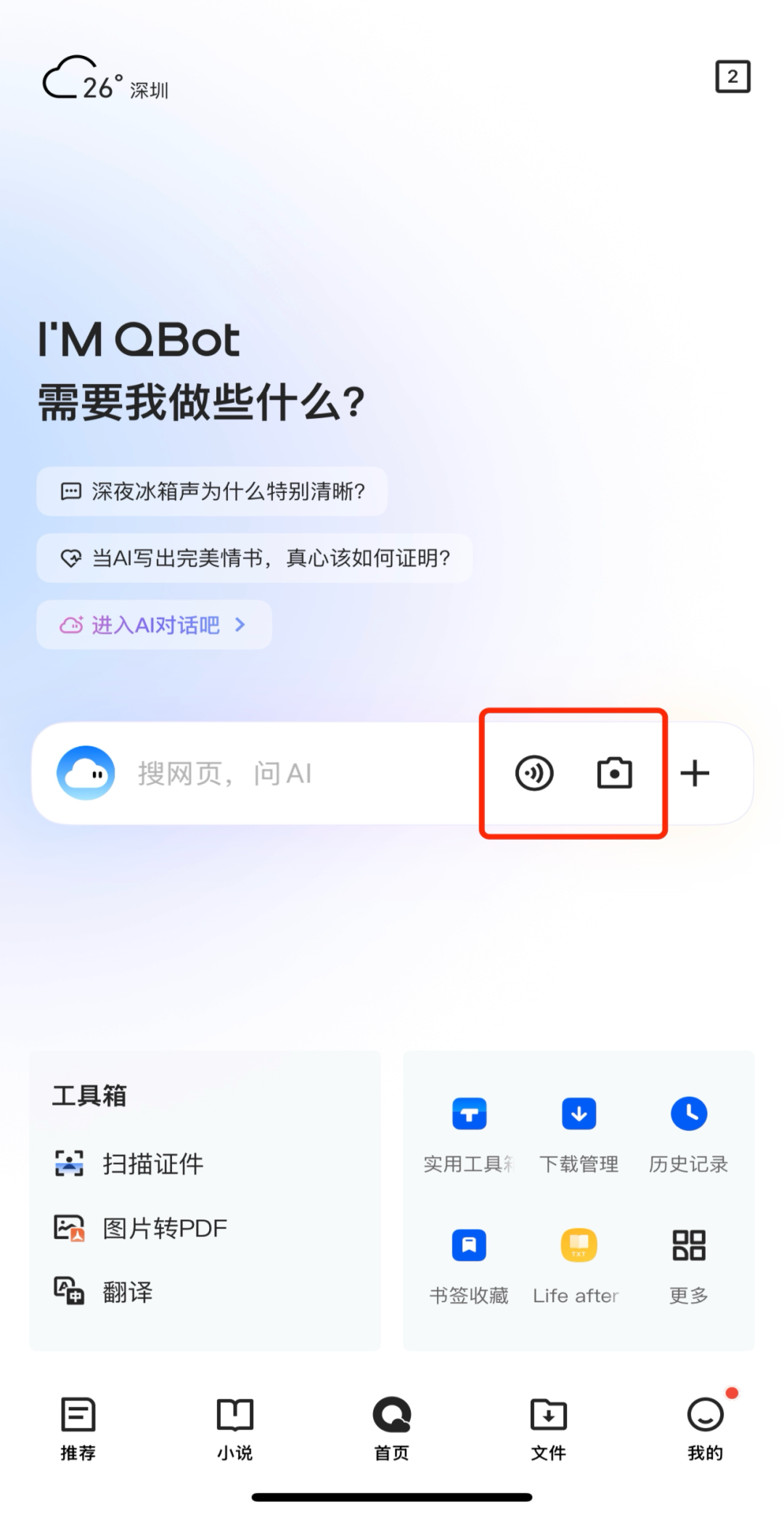 In terms of functional expansion, Kuake's "AI Super Box" integrates AI dialogue, deep search, content generation, academic research, and more, simplifying the user operation process. QQ Browser supports voice, file, and scanning searches through QBot's multimodal interaction capabilities. Users can even invoke QBot for content interpretation by taking a screenshot. Additionally, Agents like "AI College Entrance Examination Guide" and "Download Assistant" have been launched, further expanding the functional boundaries of the browser.
In terms of functional expansion, Kuake's "AI Super Box" integrates AI dialogue, deep search, content generation, academic research, and more, simplifying the user operation process. QQ Browser supports voice, file, and scanning searches through QBot's multimodal interaction capabilities. Users can even invoke QBot for content interpretation by taking a screenshot. Additionally, Agents like "AI College Entrance Examination Guide" and "Download Assistant" have been launched, further expanding the functional boundaries of the browser. 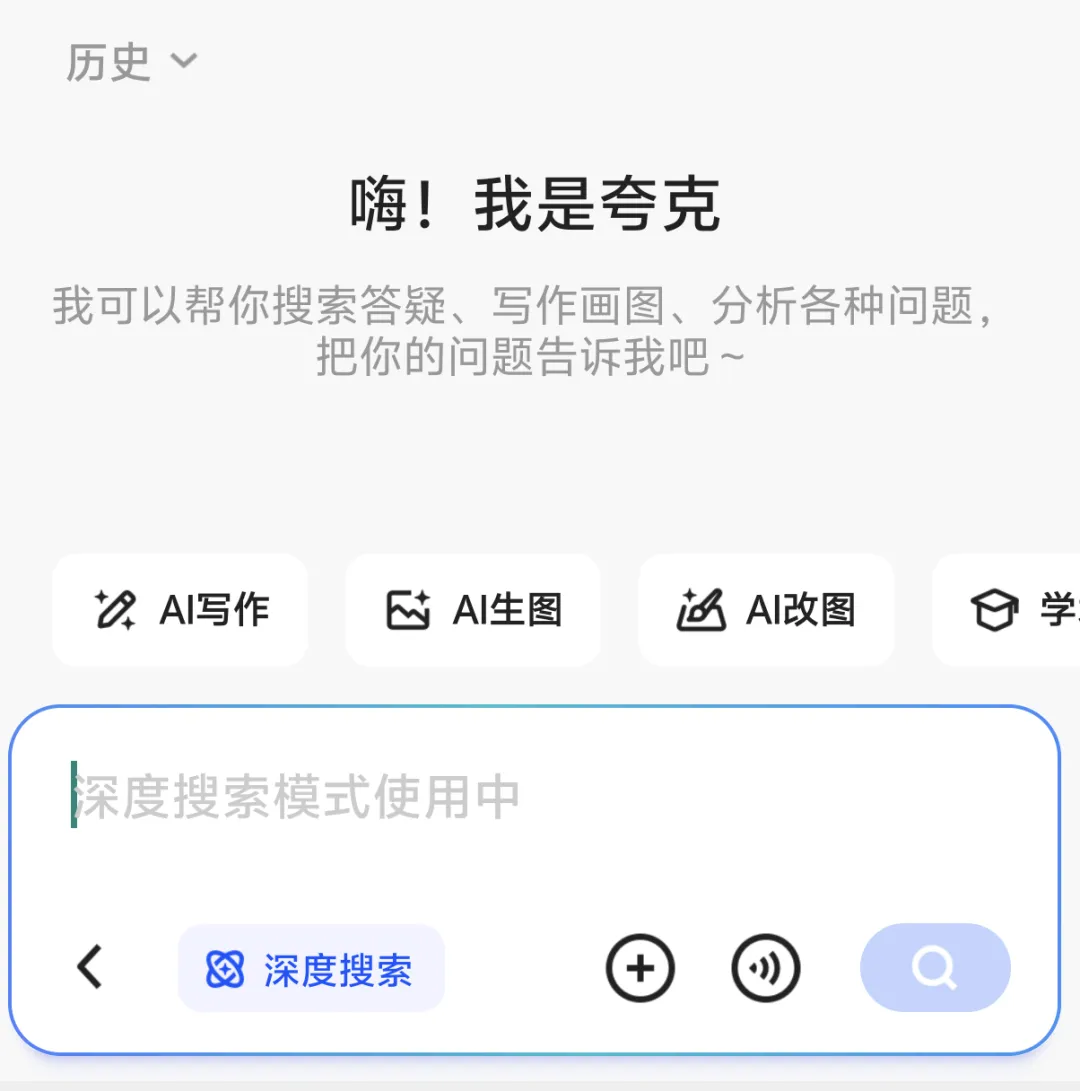 From a user experience perspective, Kuake provides users with more precise information and services through AI technology, while QQ Browser makes information acquisition more convenient and efficient through interactive search and multimodal functions. Both strive to transcend traditional browsers' functional limitations, transforming them from simple webpage display tools into super platforms integrating information retrieval, content consumption, and tool applications. In fact, the era of "boundaryless" browsers has only just begun. With AI technology's development, browsers may further break traditional functional constraints in the future, becoming the core entry point for users to interact with the digital world. Alibaba positions Kuake as an "AI inclusive platform," aiming to provide comprehensive intelligent services to 200 million users through AI technology. QQ Browser, on the other hand, continuously expands browser boundaries and explores more possibilities through QBot and Agent functions. The rise of these browser products targets the traffic entry position once dominated by search engines. The confrontation between the two camps looms, with similarities in the expansion of search boxes and "boundarylessness."
From a user experience perspective, Kuake provides users with more precise information and services through AI technology, while QQ Browser makes information acquisition more convenient and efficient through interactive search and multimodal functions. Both strive to transcend traditional browsers' functional limitations, transforming them from simple webpage display tools into super platforms integrating information retrieval, content consumption, and tool applications. In fact, the era of "boundaryless" browsers has only just begun. With AI technology's development, browsers may further break traditional functional constraints in the future, becoming the core entry point for users to interact with the digital world. Alibaba positions Kuake as an "AI inclusive platform," aiming to provide comprehensive intelligent services to 200 million users through AI technology. QQ Browser, on the other hand, continuously expands browser boundaries and explores more possibilities through QBot and Agent functions. The rise of these browser products targets the traffic entry position once dominated by search engines. The confrontation between the two camps looms, with similarities in the expansion of search boxes and "boundarylessness."
03
A New Traffic War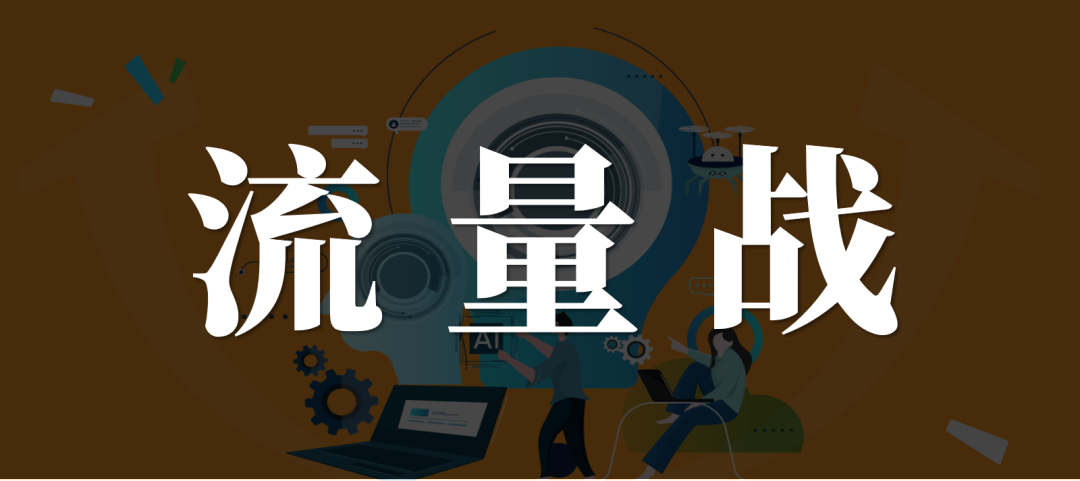 In internet history, search engines and browsers have always been pivotal battlegrounds for traffic competition. From desktops to mobiles, from traditional search to AI empowerment, changes in traffic entry points have witnessed relentless competition among internet giants. Early players like Yahoo and Google, as well as today's titans like Baidu, Alibaba, and Tencent, have sought traffic advantages through product optimization and function expansion. The AI era brings new opportunities and challenges to search engines and browsers. On one hand, AI technology offers more intelligent search results and interactive experiences through natural language processing and deep learning; on the other hand, the emergence of AI browsers disrupts the traditional search engine market structure. However, despite AI technology's new vitality for browsers and search engines, current AI browsers still face numerous challenges. From a user experience perspective, AI browsers are not yet mature. While they possess certain intelligent interaction capabilities, they lag in tool use and professional skills. For instance, when tackling complex problems, AI browsers may not provide precise solutions like human experts. Moreover, AI technology's rapid development poses new issues like data privacy and content copyright.
In internet history, search engines and browsers have always been pivotal battlegrounds for traffic competition. From desktops to mobiles, from traditional search to AI empowerment, changes in traffic entry points have witnessed relentless competition among internet giants. Early players like Yahoo and Google, as well as today's titans like Baidu, Alibaba, and Tencent, have sought traffic advantages through product optimization and function expansion. The AI era brings new opportunities and challenges to search engines and browsers. On one hand, AI technology offers more intelligent search results and interactive experiences through natural language processing and deep learning; on the other hand, the emergence of AI browsers disrupts the traditional search engine market structure. However, despite AI technology's new vitality for browsers and search engines, current AI browsers still face numerous challenges. From a user experience perspective, AI browsers are not yet mature. While they possess certain intelligent interaction capabilities, they lag in tool use and professional skills. For instance, when tackling complex problems, AI browsers may not provide precise solutions like human experts. Moreover, AI technology's rapid development poses new issues like data privacy and content copyright.
In the AI era's traffic war, both internet giants like BAT and emerging startups have realignment opportunities. Baidu, with its deep search field expertise, attempts to solidify its market position through AI technology and user experience optimization. Alibaba aims to subvert traditional search logic through Kuake Browser's AI transformation. Tencent leverages its robust social ecosystem and advertising strategy to swiftly promote its AI search products. However, the war's outcome remains uncertain, with emerging AI browsers and search products continuously capturing market share. Additionally, AI technology's development profoundly impacts traditional internet business models. AI products' aggregation function may significantly reduce traditional website traffic, affecting advertising revenue. This underscores that the AI era's traffic war is not just a technological competition but also a business model reshaping. Marc Andreessen, the founder of Netscape, the earliest internet browser company, once believed that the browser is the software that has had the greatest impact on people's lives. This argument, overturned by the mobile internet, is now reaffirmed by AI-powered browsers. In the future, search engines and browsers' development will increasingly rely on AI technology's deep integration. Only platforms that genuinely understand user needs and provide precise services will stand out in this traffic war, profoundly influencing the internet's future landscape.
Reference: China Entrepreneur Magazine, "Search is Dead" Narrowcast, "Why Can AI Browsers Aggregate Everything?" Jiazi Light-Year, "The Biggest Revision in a Decade, Baidu Search is Being Tough on Itself" China Business News, "Tencent, Alibaba, and ByteDance are All Deploying AI Browsers, Will It Be the Super Entry Point on PC?"







